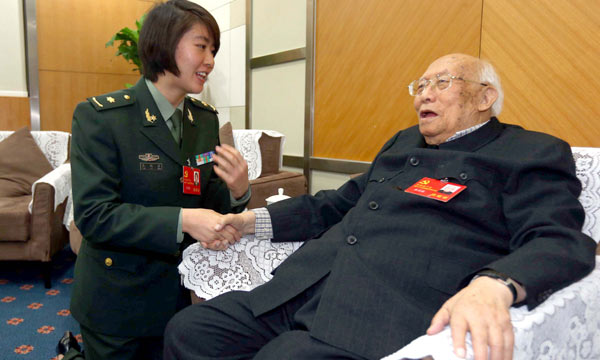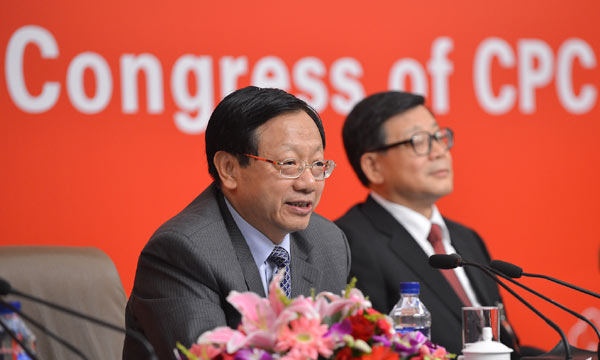Nation's economy to undergo change
By Lan Lan (China Daily)
Updated: 2012-11-07 03:02
China will see a shift from an investment-driven economy to a consumption-driven one in the coming decade, a development bolstered by increased urbanization and restructuring, economists said.
About 400 million Chinese rural workers are expected to become city dwellers in the coming 10 years, and the change will create considerable consumption demand, said Chi Fulin, president of the Hainan-based China Institute for Reform and Development.
"Consumption demand unleashed by increased urbanization is expected to guarantee that China's economy keeps a growth rate ranging from 7 to 8 percent in the coming decade," Chi said.
The economist made the forecast ahead of the 18th National Congress of the Communist Party of China, scheduled to open on Thursday, which will see the election of the new top leadership for the world's second-largest economy.
Topping the agenda for the new leadership will be the country's economic transformation from one overdependent on investment to one more consumption-driven.
China's investment rate is about 50 percent, which is very high compared with other countries, although the growth in consumption has gained some momentum this year.
In the first three quarters, China's final consumption expenditures — the sum of household and government consumption expenditures — accounted for about 55 percent of its gross domestic product, indicating for the first time in 10 years that the contribution of consumption surpassed that of the investment.
China's residential consumption demand, which was 16 trillion yuan ($2.56 trillion) in 2011, is expected to climb to about 30 trillion yuan in 2016 and up to 50 trillion yuan by 2022, Chi said, adding household consumption is going to account for about 50 percent of GDP by then, and the final consumption is going to represent about 60 percent of that, forming a consumption-dominated economic growth pattern.
"Maintaining reasonable investment is suitable for China's conditions, but the focus of investment should be switched to public sectors such as education, medical care and social security," Chi said.
Zhang Yansheng, secretary-general of the Academic Council of the National Development and Reform Commission, called the year 2012 a "turning point" for China as it seeks to change its long-term unbalanced development strategy.
He noted a number of challenges facing the Chinese economy, such as declining exports, the reluctance of enterprises to make investments, and overcapacity in some sectors.
Growth of the eastern coastal areas, which used to be the driver of China's economic growth, has faced a slowdown affected by weak external demand and industry migration, but the new model for future growth remains unclear, he said.
China's economic growth slowed to 7.4 percent in the third quarter, a seventh consecutive quarter due to weak demand, but many economists said the growth is likely to bottom out.
Economic growth in emerging economies has been seriously affected by the eurozone's lingering debt crisis and the sluggish US economy.
The International Monetary Fund has cut its forecast for China's economic growth this year to 7.8 percent and that of India to 4.9 percent.
Contact the writer at lanlan@chinadaily.com.cn
Related Stories
Premier Wen displays confidence in economy 2012-11-06 08:40
Domestic consumption assumes importance to China's economy 2012-10-02 15:45
China plans slower growth in consumption 2012-09-10 17:13
Boost consumption by increasing labor prices 2012-09-07 13:25
China's rural migrants key to consumption 2012-08-21 13:15
Video







